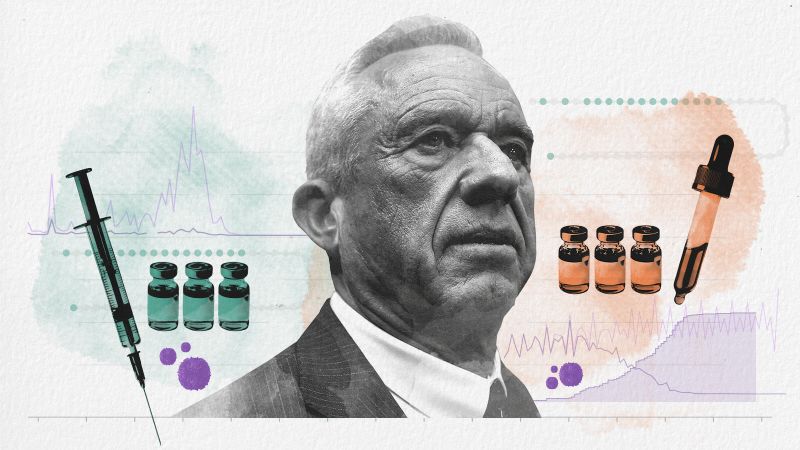Robert F. Kennedy Jr., nominated by President Donald Trump to head the U.S. Department of Health and Human Services (HHS), has faced intense scrutiny regarding his long-standing vaccine skepticism during the current Senate confirmation hearings. Despite his recent attempts to soften his stance on vaccines, notably asserting support for the polio vaccine, his history raises questions about the credibility of his assertions. With a full Senate vote approaching, CNN took the opportunity to delve deeper into the polio vaccine—a subject that Kennedy has questioned extensively over the years.
Kennedy is not just any public figure; he is the son of the iconic Robert F. Kennedy, who served as U.S. Attorney General and was both a senator and a presidential candidate. Over the past two decades, Kennedy Jr. has authored several anti-vaccine books, lobbied Congress for parental exemptions from vaccination mandates, and made numerous widely reported claims that vaccines are insufficiently tested—all claims he has backed with scant evidence. His recent statements to the media, where he claimed to be “all for” the polio vaccine, starkly contrast with his historical rhetoric, which suggested that the polio vaccine might increase vulnerability to future cases of polio.
To understand the context, it is essential to grasp the key facts surrounding polio—the disease itself, the vaccines developed over the years, and the impact these vaccines have had on public health. Poliomyelitis, commonly known as polio, begins with mild symptoms such as fatigue, headaches, and limb pain but can progress to paralysis in one out of every 200 infections. Particularly alarming is that 5% to 10% of those who become paralyzed may succumb to respiratory failure due to immobilization of breathing muscles. Children under five are the most vulnerable to this disease, though unvaccinated individuals of any age are at risk when exposed to the virus.
Polio was a terrifying concern throughout the 19th and 20th centuries in the United States, culminating in a devastating outbreak that resulted in over 3,000 fatalities in 1952. The efforts to combat polio led to the advent of the first vaccine developed by Dr. Jonas Salk in the early 1950s, which was authorized for public use in 1955. This inactivated vaccine still sees usage in certain parts of the global community today. Following this, the late 1950s and early 1960s marked the introduction of an oral vaccine developed by Dr. Albert Sabin, becoming a staple in vaccination schedules due to its cost-effectiveness and ease of administration, albeit it is no longer used domestically in the U.S.
The efficacy of polio vaccines cannot be understated. The polio vaccines are credited with eradicating the wild type of the disease in numerous regions, including the Americas and Europe. The World Health Organization (WHO) notes that Czechoslovakia demonstrated the possibility of achieving nationwide eradication as early as 1960 through extensive vaccination campaigns. However, the virus remains endemic in areas like Afghanistan and Pakistan.
Statistically, these vaccines have played a monumental role in preventing disease, saving an estimated 29 million cases of paralytic polio from 1960 to 2021 alone. A broader evaluation of immunization programs, which includes diseases other than polio like smallpox and tuberculosis, revealed that an estimated 154 million lives were saved over the past five decades, with 101 million of these being infants.
As Robert F. Kennedy Jr.’s nomination unfolds, the debate surrounding his past comments on vaccines is reigniting significant concern, particularly among Senate Democrats. If all Democratic senators oppose his confirmation, Kennedy can afford to lose only three Republican votes. Notably, former Senate Leader Mitch McConnell of Kentucky, a polio survivor himself, has cautioned against any association with undermining faith in vaccines, emphasizing the crucial role they play in public health. The debate over Kennedy’s suitability for the role continues, as the Senate edges closer to a critical vote that could have long-lasting ramifications on health policy and public confidence in vaccination programs, a crucial line of defense against diseases like polio.












